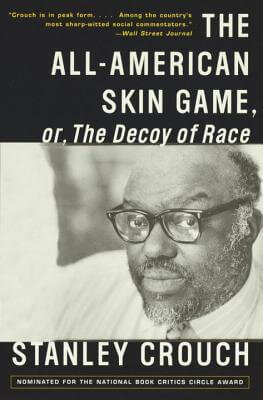Stanley Crouch and Randall Kenan Have Passed
Over the past week two giants of the literary world, who happen to be Afro-American, have passed, and with them two distinct and much needed voices, voices that all of us should be hearing, are gone.
The first is Stanley Crouch.
According to his obit in the New York Times:
"Mr. Crouch proclaimed himself a “radical pragmatist,” defining it this way:
“I affirm whatever I think has the best chance of working, of being both inspirational and unsentimental, of reasoning across the categories of false division and beyond the decoy of race."
"Espousing that pragmatism, he found ready adversaries among fellow Black Americans, whom he criticized as defining themselves in racial terms and as reducing the broader Black experience to one of victimization. He vilified gangsta rap as “‘Birth of a Nation’ with a backbeat,” the Rev. Al Sharpton as a “buffoon,” the Nation of Islam leader Louis Farrakhan as “insane,” the Nobel laureate Toni Morrison “as American as P.T. Barnum” and Alex Haley, the author of “Roots,” as “opportunistic.”
"By contrast, he venerated his intellectual mentors James Baldwin, Ralph Ellison and Albert Murray, who, by his lights, saw beyond the conventions of race and ideology while viewing the contributions of Black people as integral to the American experience."
I want very much to learn why he considered Toni Morrison to be as American as P.T. Barnum, but I like this, the challenge, the different set of eyes and what they see.
And I also would describe myself as a radical pragmatist. We spend too much time looking for what divides us and not enough for what could unite us. And this limits us intellectually.
The second is Randall Kenan, a writer of the South who—like Faulkner and Howard Frank Mosher—created his own small southern world in which idiosyncratic characters, myth, magical realism, and culture interacted, conflicted, and lived.
These two writers are misses
